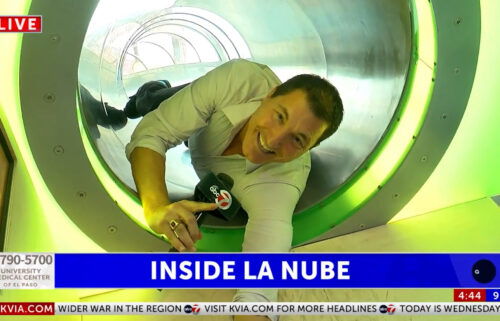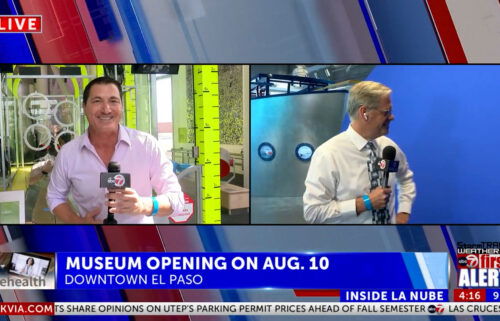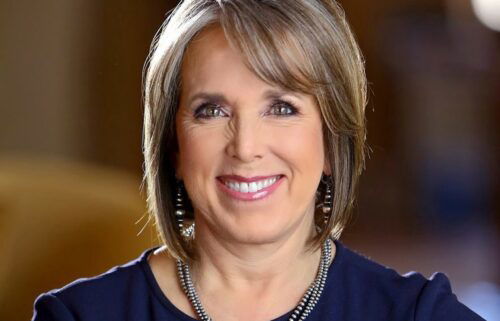Olympian turned doctor journeys to raise awareness, create diversity in sport of water polo
Click here for updates on this story
Los Angeles, CA (KCAL/KCBS) — Water polo is often known as the world’s toughest sport. But one local doctor and former Olympian says one of the problems in the sport is “skin deep.”
Dr. Omar Amr, a Harvard-educated emergency room physician, played the sport through high school, college and even during the 2004 Olympics. The son of Egyptian immigrants, Dr. Amr says his dark skin led him to be on the receiving end of the N-word countless times, including during a crucial college game.
“Off of this sprint – this guy kicked me. And called me the N-word … in front of the official,” said Dr. Amr of the Alliance for Diversity and Equity in Water Polo. “I flew back … and I was kicked out of the game.”
In other words, though he was a target of a racial slur, Dr. Amr says he was the one ejected from the game.
“That’s what happened. And it happened more times than I can count,” he recounts. After the game – his justification was he didn’t want me to retaliate.
After retiring from competition, Dr. Amr became the doctor for the Women’s National Water Polo team, which allowed him to meet a young athlete, Ashleigh Johnson, who he says had talent that so many coaches didn’t see.
“He had to put his reputation on the line at multiple points to speak against people who were saying that I was lazy or I came from a family that had bad values or I wouldn’t work hard enough or commit enough to make this team,” said Johnson, an Olympic champion.
“I knew when she was a little kid she was going to be an Olympian,” recalls Dr. Amr, who fought for Johnson to be the starting goalie on the national team – which she helped to win the gold medal at the 2016 Olympics. Johnson is the first African American woman to compete at the Olympics in water polo.
The team’s General Manager says in the wake of George Floyd demonstrations – USA Water Polo created a task force – to address systemic injustice. One of the starting points: creating more access to pools in under-resourced communities.
“In the late 60s and 70s, those pools after the Civil Rights Act and those pools were forced to become integrated. Many cities decide it was no longer in their best interest to fund an aquatics facility in their area. So by doing so, you are furthering exclusion of people of color from that facility,” said John Abdou, the USA Water Polo GM.
It took Amr two tries to make the Olympic Men’s team. He says he was cut in 2000 after a trip to Europe where every meal included pork, which he can’t eat because he’s a practicing Muslim. He says he was bullied after a team staffer overheard him asking the waiter for something he could eat.
“And emphatically stated in front of the whole team that I was not allowed to be different. And if I was going to be different, I shouldn’t be allowed to eat. So from that day on – for the rest of this trip – which was over five weeks all I could eat was bread and olive oil essentially,” he recalled.
In 2001 – he trained to qualify for the squad – with a new coaching staff – that respected his faith, which led to him making the team in 2004.
“I mean it was… I’m trying hard not to get emotional about it. It was such a breath of fresh air. For the first time, I wasn’t a jerk for being different,” he said. –
That is why he founded the Alliance for Diversity and Equity in Water Polo to promote the sport and find more Ashleigh Johnsons. He says inclusion is important in athletics and medicine – where he’s often mistaken for a nurse.
“It’s safe to say I’m not not (sic) afraid to get in people’s faces,” he said. “I don’t want this to turn into an emotional battle. I don’t want to be another angry dark guy… fighting the fight. I want objective measures to create change …”
Please note: This content carries a strict local market embargo. If you share the same market as the contributor of this article, you may not use it on any platform.




